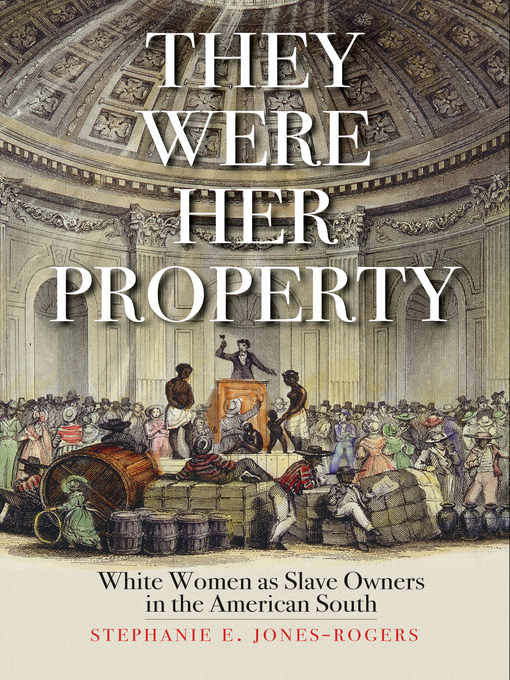A bold and searing investigation into the role of white women in the American slave economy
Bridging women's history, the history of the South, and African American history, this book makes a bold argument about the role of white women in American slavery. Historian Stephanie E. Jones-Rogers draws on a variety of sources to show that slave†'owning women were sophisticated economic actors who directly engaged in and benefited from the South's slave market. Because women typically inherited more slaves than land, enslaved people were often their primary source of wealth. Not only did white women often refuse to cede ownership of their slaves to their husbands, they employed management techniques that were as effective and brutal as those used by slave†'owning men. White women actively participated in the slave market, profited from it, and used it for economic and social empowerment. By examining the economically entangled lives of enslaved people and slave†'owning women, Jones-Rogers presents a narrative that forces us to rethink the economics and social conventions of slaveholding America.

-
Creators
-
Publisher
-
Release date
February 1, 2019 -
Formats
-
Kindle Book
-
OverDrive Read
- ISBN: 9780300245103
-
EPUB ebook
- ISBN: 9780300245103
- File size: 2976 KB
-
-
Accessibility
No publisher statement provided -
Languages
- English
-
Reviews

Loading
Formats
- Kindle Book
- OverDrive Read
- EPUB ebook
subjects
Languages
- English
Why is availability limited?
×Availability can change throughout the month based on the library's budget. You can still place a hold on the title, and your hold will be automatically filled as soon as the title is available again.
The Kindle Book format for this title is not supported on:
×Read-along ebook
×The OverDrive Read format of this ebook has professional narration that plays while you read in your browser. Learn more here.